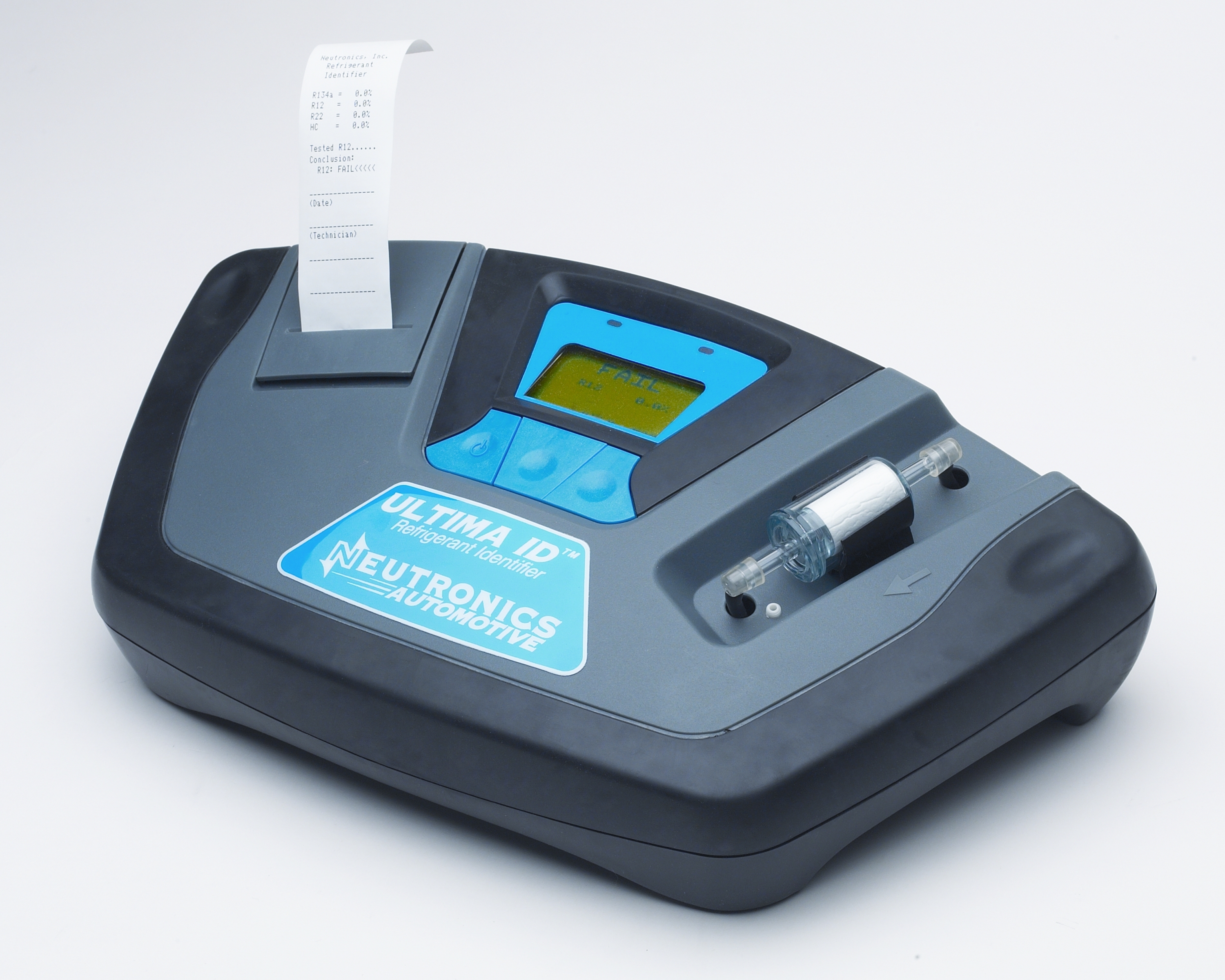Why you should use a refrigerant identifier
From the MACS Technical Think tank
Mixed/Cross-contaminated Refrigerant
When a vehicle arrives at your shop for A/C service, try to determine if you might be about to work on a contaminated system. Ask the customer questions about work that may have previously been done, and especially, what may have previously been charged into the system.
Always try to find out as much as you possibly can about any vehicle on which you intend to perform A/C service, and also about any refrigerant that you intend to purchase. To be as safe as possible, you should use a refrigerant identifier on every system you’re going to work on, and on every tank of refrigerant that you intend to buy.
Mixed/cross-contaminated refrigerant is harmful for a
number of different reasons. If you mistakenly draw mixed refrigerant into your service
equipment, not only could it possibly damage the equipment,
but unless detected, you will contaminate everyother vehicle that you use the equipment to service. Even a small amount of one refrigerant mixed with another can
ruin the entire batch.

Mixed refrigerants can result in elevated system operating pressures, and this includes CFC-12 mixed with HFC-134a. A mixture of these two refrigerants will raise operating
pressures to a point higher than either would ever reach by itself in a “normally” operating system, and how high the pressure goes is determined by the mixture ratio between
the two refrigerants. The raising of system operating pressures above normal can result in poor A/C performance and could also cause damage to system components.
Also, on a recovery/recycling machine so equipped, mixed/cross-contaminated refrigerant inside the machine’s tank could reach a pressure high enough to fool the machine
into activating its automatic air purge feature. This would cause refrigerant to be released into the atmosphere.
Mixed refrigerants cannot be separated by recycling machines
and are considered hazardous waste. They must
be transported to an off-site facility for reclamation or destruction.
The Mobile Air Conditioning Society’s blog has been honored as the best business to business blog in the Automotive Aftermarket by the Automotive Communications Awards and the Car Care Council Women’s Board!
When having your mobile A/C system professionally serviced, insist on proper repair procedures and quality replacement parts. Insist on recovery and recycling so that refrigerant can be reused and not released into the atmosphere.
If you’re a service professional and not a MACS member yet, you should be, click here for more information.
You can E-mail us at macsworldwide@macsw.org or visit http://bit.ly/cf7az8 to find a Mobile Air Conditioning Society member repair shop in your area. Visit http://bit.ly/9FxwTh to find out more about your car’s mobile A/C and engine cooling system.
The 32nd annual Mobile Air Conditioning Society (MACS) Worldwide Convention and Trade Show will take place January 18-20, 2012 at the Rio All Suite Hotel and Casino in Las Vegas, NV.
